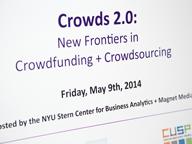Faculty News
—
In an op-ed, Prof. Lawrence White argues that mortgage finance should be privatized
—

Excerpt from CNBC -- "It is now more than five years since Fannie Mae and Freddie Mac were ignominiously put into conservatorships and became wards of the U.S. government — at a cost of $188 billion. They have continued to function during these five-plus years, and have even become profitable again. But it is long past time to give them a decent burial — and also to make sure that clones don't spring up to replace them."
Faculty News
—

Excerpt from CNBC -- "It is now more than five years since Fannie Mae and Freddie Mac were ignominiously put into conservatorships and became wards of the U.S. government — at a cost of $188 billion. They have continued to function during these five-plus years, and have even become profitable again. But it is long past time to give them a decent burial — and also to make sure that clones don't spring up to replace them."


















